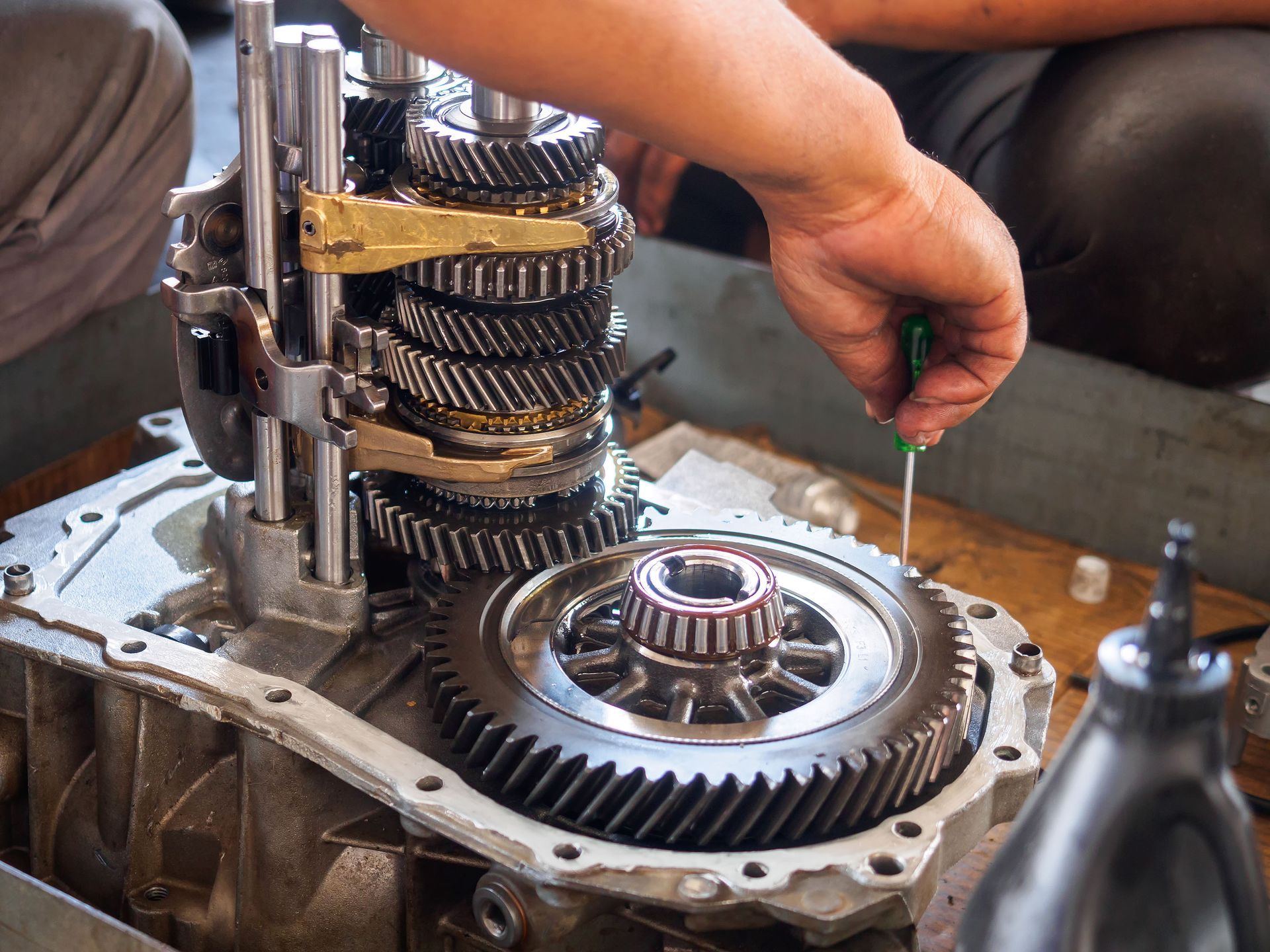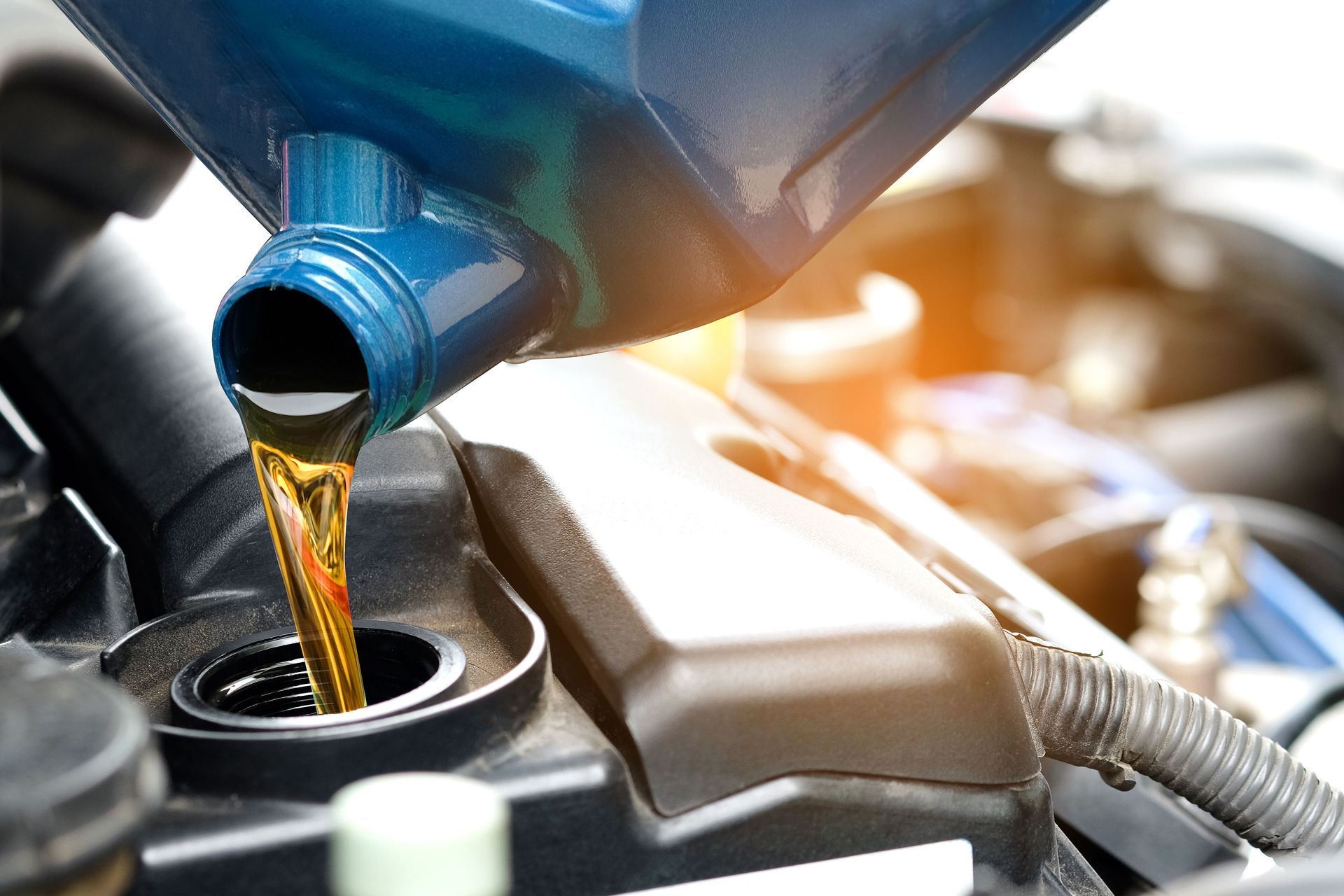6 Signs Your Transmission Is Failing and Needs Immediate Repair
A failing transmission doesn’t just interrupt your daily routine. It can compromise the safety, performance, and longevity of your vehicle. With more cars staying on the road longer than ever, it's critical to stay alert to early warning signs. According to S&P Global Mobility, the average age of cars and light trucks in the United States rose to 12.6 years in 2024. That kind of longevity depends on proactive maintenance, especially for major components like the transmission. Below, we explore six common signs that your transmission may be on the verge of failure and why getting timely transmission repair can save you money and prevent further damage.
1. Notice Unusual Noises
Strange sounds are often the first red flag when transmission trouble is brewing. Grinding, clunking, humming, or whining noises while shifting gears suggest possible internal wear or low fluid levels. These sounds usually worsen over time and can indicate problems with synchronizers, bearings, or transmission mounts. Addressing these issues early can help avoid expensive repairs down the line.
Buzzing or grinding noises may result from worn transmission bands or failing gears. If ignored, these symptoms can escalate to a complete breakdown. Getting a professional transmission repair shop to inspect and diagnose the problem early can often prevent more costly interventions.
Sometimes the solution is as simple as a fluid flush or replacing worn parts. But the longer you let noises continue, the more risk you take with vital transmission components. Pay close attention to any new or unusual sounds, especially during shifting or acceleration. Even subtle changes in how your vehicle sounds or responds should be noted and reported to a trusted technician.
2. Experience Slipping or Delayed Shifting
A delayed reaction when shifting into drive or reverse is a common sign of trouble. Another major concern is when your vehicle unexpectedly slips out of gear while driving. These problems often indicate worn clutches, low hydraulic pressure, or other internal failures, and they require immediate transmission repair.
Gear slippage is dangerous, especially at high speeds or in heavy traffic. It also suggests your transmission isn’t holding pressure effectively. Waiting too long to address these symptoms can lead to full transmission failure, which is much more expensive than catching the issue early.
Whether the cause is worn clutches or degraded fluid, these problems only get worse with time. Have your transmission inspected promptly if you notice any hesitation, slipping, or delayed response during gear changes. Many shops offer free road tests and diagnostics, which can provide early insights and help you plan a repair strategy that works within your budget.
3. Feel Harsh or Erratic Gear Changes
If gear shifts start feeling jarring, rough, or inconsistent, there could be an issue with the transmission control module. This electronic system manages shift timing and logic, and when it malfunctions, it disrupts the smooth operation you’re used to.
Harsh gear changes may also be linked to contaminated or improperly maintained fluid. When fluid can't provide adequate lubrication, internal parts suffer. In some cases, replacing the fluid or recalibrating the control module can restore smooth performance.
Ignoring these signs can create additional wear on the drivetrain and reduce overall vehicle reliability. Skilled technicians can test your control module and fluid condition to recommend the best course of action. Some drivers even report jerking or shaking when accelerating, which could signal more complex problems affecting gear engagement.
4. Observe Power Loss or Hesitation
A transmission that struggles to transmit power efficiently causes noticeable sluggishness. You may feel your engine revving with little forward motion, or you might find it difficult to accelerate on inclines or merge onto highways. These issues point to deeper problems within the transmission.
Power loss is often connected to worn internal components or fluid flow issues. The longer you drive with these symptoms, the more strain you put on related systems, such as the engine and drivetrain. A full evaluation by a transmission repair specialist can pinpoint whether the issue lies in the clutches, seals, or another subsystem.
If your car feels unusually weak under acceleration or frequently hesitates, schedule an inspection. Identifying and correcting the problem early keeps your vehicle operating safely and efficiently. In some cases, power loss may coincide with other symptoms like slipping, delayed shifting, or overheating—further evidence that your transmission needs attention.
5. Watch for Leaks and Fluid Problems
Transmission fluid is vital for reducing heat and friction inside the system. If you notice red or brown puddles beneath your vehicle, that typically indicates a leak. This could be due to a failing seal, a cracked pan, or a damaged gasket. Even a slow leak can affect performance and cause long-term damage.
You may also detect a burnt odor coming from your transmission, which usually means the fluid has overheated. Discolored or dark brown fluid is another warning sign of contamination or wear. Routine checks can help you catch these issues before they escalate.
A quick fluid inspection or flush is often a straightforward fix, but only if it’s done in time. Monitoring fluid levels and condition is one of the simplest ways to avoid major transmission repair costs. Many shops can also analyze fluid samples to determine whether any metal shavings or debris are present, which can point to more serious internal issues.
6. Pay Attention to Warning Lights
Many vehicles are equipped with a specific transmission warning light in addition to the standard check engine light. If either of these lights appear, it could indicate problems ranging from overheating and sensor failure to pressure issues or fluid degradation.
Diagnostic tools can help determine the exact cause. While aftermarket scanners can read basic codes, a certified technician can give you a much clearer picture and offer expert recommendations. Ignoring warning lights can allow small problems to become big ones.
These alerts are built into your vehicle to help you stay ahead of major failures. Treating them seriously and acting quickly keeps you in control of your vehicle’s health and safety. If you notice the light coming on intermittently, that can still be a warning that something is wrong. A quick visit to your local repair shop could spare you from much more extensive repairs later.
Transmission issues are never convenient, but catching the early signs can make a huge difference in both cost and vehicle longevity. With vehicles lasting longer than ever before, proper maintenance is a must. Knowing when to seek transmission repair protects not only your car but also your peace of mind.
Let TransMatics Transmissions be your trusted partner for expert
transmission repair. Since 1984, we've proudly served the greater Tampa, FL area with dependable service backed by over 40 years of experience. Our locally owned shop provides free diagnostics and computer scanning, and we include free towing with major transmission repairs. We back our work with a 12-month or 12,000-mile transmission warranty and offer a 6-month warranty on general auto repairs. Seniors, students, and military personnel receive a 10% discount, and we'll work directly with your insurance company to streamline the process. Most repairs are completed within 3 to 4 days, so you can get back on the road quickly and confidently. Call TransMatics Transmissions today to schedule your service and keep your vehicle running at its best.





Share On: